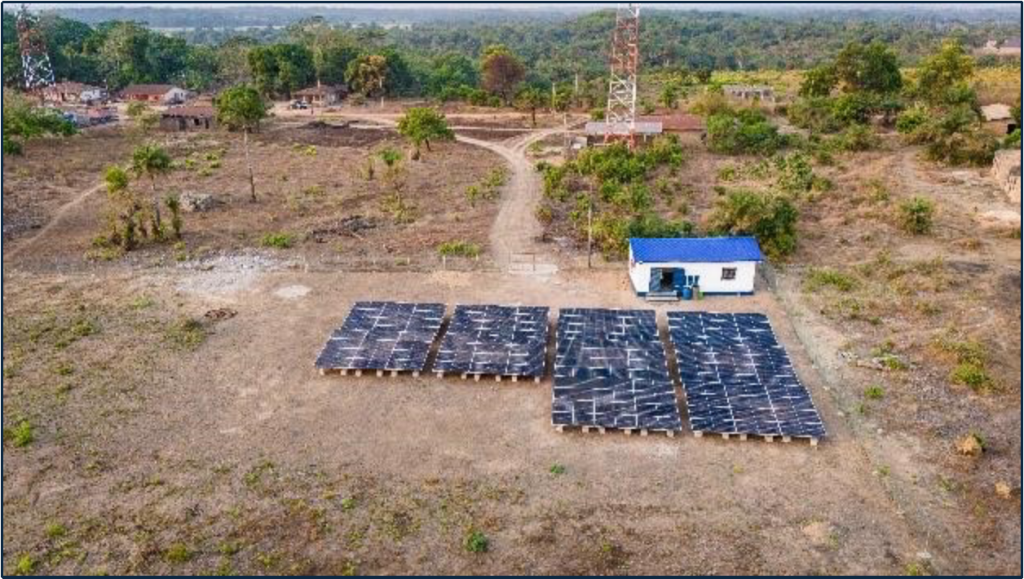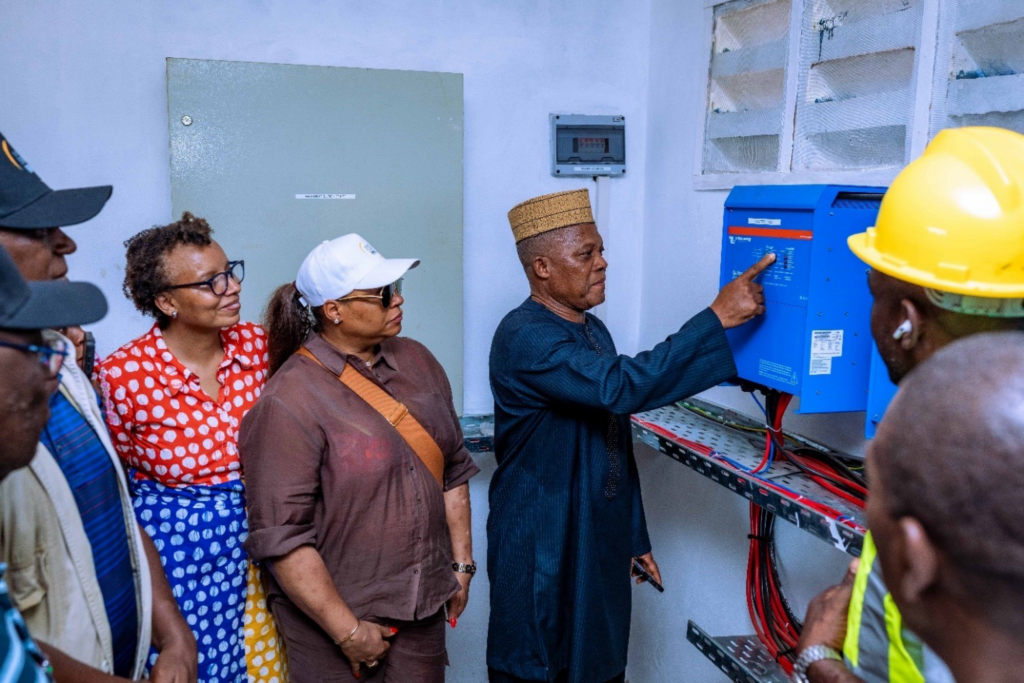In the advancement of rural electrification, the Government of Sierra Leone, in collaboration with its development partners, has successfully launched the Kassirie Mini-Grid project.
This initiative, spearheaded by Sustainable Energy for All (SEforALL), aims to provide reliable electricity to communities that have historically lacked access to such essential services. The commissioning of this solar-powered mini-grid marks a new era for the Kassirie community, which has been entirely reliant on fossil fuel generators for its energy needs. The Kassirie Mini-Grid project, which is the third undertaking by the Universal Energy Facility, is equipped with 67kW of solar power and 204kWh of battery storage.
It is designed to deliver clean and sustainable electricity to 54% of the households, businesses, and public institutions in the area. This project is expected to directly benefit thousands of residents, significantly enhancing their quality of life and economic opportunities.
Hon. Dr. Kandeh Yumkella, who serves as the Energy Sector Lead and Chairman of the Presidential Initiative on Climate Change, Renewable Energy, and Food Security (PI-CREF), expressed the transformative potential of the mini-grid project. He emphasized that the initiative goes beyond merely providing electricity; it represents a pathway to improved healthcare, enhanced educational opportunities, and the overall empowerment of communities. “The Universal Energy Facility’s Results-Based Financing (RBF) programme will transform Kassirie and Kambia District by powering homes, schools, and healthcare facilities with clean, reliable energy,” he stated.

The Kassirie mini-grid project aligns with Sierra Leone’s Energy Transition and Green Growth Plan, reinforcing the government’s commitment to improving energy access and fostering rural economic development. By harnessing renewable energy sources, this initiative not only addresses immediate power needs but also supports long-term sustainability goals. Anita Otubu, the Senior Director of the Universal Energy Facility, highlighted the critical role of donor funding in making such transformative projects possible. “The Kassirie mini-grid project underscores how donor funding can catalyze change. By investing in infrastructure for unelectrified communities, we can directly enhance lives, stimulate economic growth, and improve public services such as healthcare and education,” she explained.
Otubu also acknowledged the vital contributions from funders, including the Global Energy Alliance for People and Planet (GEAPP), and partners like the United Nations Office for Project Services (UNOPS), the European Union Delegation, and the Foreign, Commonwealth and Development Office (FCDO). The commissioning of the Kassirie Mini-Grid project is part of a broader movement towards rural electrification in Sierra Leone.
With a recent commitment of EUR 20 million in financing from the European Union Delegation, the government aims to electrify an additional 35,000 rural households and businesses. This funding is set to bring about transformative change in underserved communities, paving the way for a brighter, more sustainable future.
